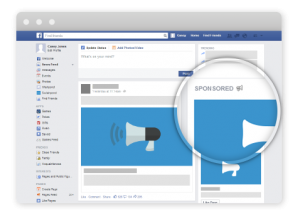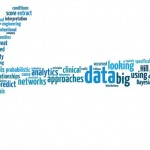Constantly Connected
A typical day for me involves avoiding eye contact with strangers by constantly using my phone to check my texts, email, Facebook, and Pinterest while also listening to Spotify. All of these apps obviously contribute a lot to big data by revealing my correspondances, location, education, interests, activities, and preferences. Before beginning this course and learning about big data, I had never considered how accessible all of this information really is and how much it reveals about myself and everyone around me.
I’ve noticed for instance that my friend Juliann pins pictures of flowers and wedding dresses, which makes sense considering that she has recently become engaged. I on the other hand, mostly pin dessert recipes, pictures of tattoos that I’ll never get, and humorous images, which probably suggests that I’m a young college student. And while I don’t post often on Facebook, I have included my interests and academic history into the “about me” section, which shows me as a young, female, college student. I can see that Facebook is taking advantage of its awareness of my demographic because of all of its ads are geared towards selling me trendy clothing, internship opportunities, and amazon textbooks. Facebook also seems very aware of my location at all times, perhaps because I have the app on my gps-linked phone, or maybe because of the events that I say I’m going to through the site. I can see that they are aware of this because the “trending” portion of the website usually includes at least one story from the area in which I happen to be.
And if Facebook knows my location, then Google surely does as well. As a French major I often use wordreference.com, and a quick glance to the side of the page will show me an advertisement for houses in Cary, NC and car dealerships. Still this is odd to me because if Google knows that I live near Cary, then they should probably also know by now that I am a French major and definitely don’t have the money to be buying a house or a car.
I’m fairly creeped out by how much these huge companies know about me, but I still continue to use their services because they have become so ingrained in my life and the lives of my friends and family that I don’t really feel like I can just stop using them altogether. And as uncomfortable as it is, I am fascinated by how clever these companies are about using their knowledge of me for their advertisements. Although as evidenced by Google’s attempts to advertise to me, their systems aren’t perfect. Their advertisements are targeting the rather large demographic I belong to, but they have yet to become specific enough to actually interest me. This makes me wonder how much more sophisticated advertising will become as companies use big data more and more carefully to target customers more individually. In the future, will smaller business even be able to compete without the information of big data?

 Previous Post
Previous Post Next Post
Next Post
This is a good point. Even when we think we’re not connected in someway we’re always using big data platforms for some reason or another. That’s why think it’s not possible to completely cut yourself off from these platforms. Even if you don’t have a computer and your cell phone doesn’t have Internet, you’re still going into stores and constantly being bombarded with advertisements.
Thanks for the great post. I think the question about the ability of smaller companies to compete against huge corporations is really interesting and perhaps hard to know. On one hand, Amazon is clearly dominating booksales. But there’s also a countermovement that supports local bookstores who aren’t going to use anywhere near the type of big data that Amazon uses. What is it that is still driving people to these bookstores? That might be something important to think about as we consider the power of big data.
Very interesting post. I agree with your point that many companies haven’t been able to manipulate big data, as far as web-based advertising, in such a way that attracts my interest to buying something. I constantly see ads pertaining to a broader demographic like you mentioned, and I usually stop for a second or two to gaze at the product, but I have yet to actually click on one of the links and make a purchase. That being said I think with the quadrillions of bytes of data being collected everyday, they will get more and more precise with this. I think big data will not only become personalized based on your interests, but based on your buying habits. If you tend to only click on advertisements for food in the evening because you are hungry (not that I have ever seen an ad for this), advertisements may become that tailored to individuals routine’s and personal buying quirks. Excellent points though!